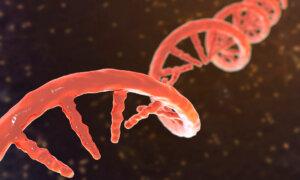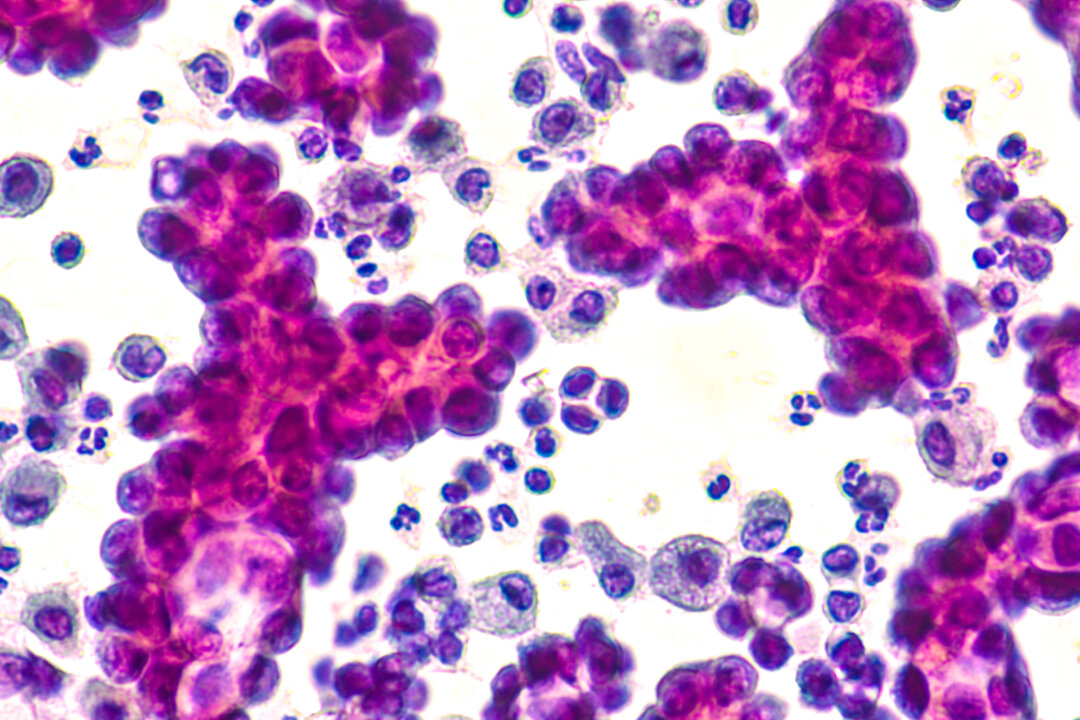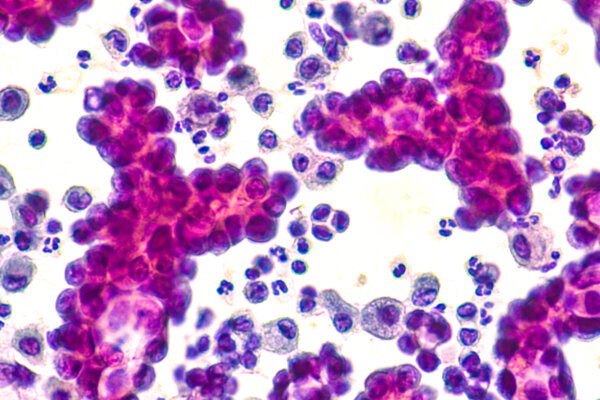COVID Spike Proteins Help Cancer Cells Survive, Resist Chemotherapy: Brown University Preprint Paper
The p53 gene—the most commonly affected by cancer—stops cancer cell growth and encourages DNA repair.
Spike protein from SARS-CoV-2, the virus that causes COVID-19, potentially promotes cancer by interfering with anti-cancer activities, according to a recent preprint cell study from Brown University.
The preprint authors, led by Dr. Wafik El-Deiry, director of the Cancer Center at Brown University, exposed cancer cells to spike protein subunits. They found that the spike subunits may promote cancer survival and growth by blocking a cancer suppressor gene known as p53.
The gene—the most commonly affected by cancer—stops cancer cell growth and encourages DNA repair.
“Interfering with p53 can promote cancer development as well as aid cancer growth,” Dr. El-Deiry told The Epoch Times.
When exposed to chemotherapy, cancer cells containing spike protein subunits had a better chance of survival.
“We saw enhanced cancer cell viability in the presence of SARS-CoV-2 spike S2 subunit after treatment with several chemotherapy agents,” said Dr. El-Deiry.
Spike Subunits Block Anti-Cancer Gene
The SARS-CoV-2 spike protein comprises two components: S1 and S2. In this study, the researchers tested the effects of the S2 component in several human cancer cell lines: lung, breast, colorectal, and sarcoma cancer cells.
All cells were modified to include normal p53 genes, and some were introduced to spike protein S2 DNA.
The researchers then used chemotherapy drugs to activate the p53 genes and cause cancer cell death.
However, they found that cancer cells with spike protein S2 tended to survive the effects of the anti-cancer gene and chemotherapy. They also observed that p53 activity was reduced in these cells.
It is still unknown why cancer cells with spike protein S2 DNA had better survival rates. Dr. El-Deiry said it could be because S2 proteins seem to interfere with p53 activity. However, S2 proteins may also cause “other effects that promote cell survival” even in the presence of toxic chemotherapy.
COVID-19 Vaccines May Have Similar Effects
Dr. El-Deiry’s study was designed to test whether the SARS-CoV-2 virus or its viral subunits could promote cancer activities.
However, the study further implied that SARS-CoV-2 therapeutics like the COVID-19 mRNA and protein vaccines may yield similar effects.
“Our goal was to study spike protein regardless of its origin,” Dr. El-Deiry told The Epoch Times. “We focused on spike that may come from infection or any other way it can be expressed in human cells … this would also apply to vaccine-made spike.”
Dr. El-Deiry was careful to highlight the many limitations of his study, including that it was a simple cell culture study. Additionally, with differing spike variations in the different viral strains and vaccines, the health consequences they may have require more research.
More Thorough Studies Needed
When asked if human cancers carry the same risks when exposed to spike protein S2, Dr. El-Deiry said their current data are too preliminary to know.
He said additional animal studies would be needed to “more thoroughly [evaluate] cancer susceptibility.”
He would also like to examine the behaviors of normal cell types and their responses to different spike variants. He hopes that the spike proteins generated by future vaccines will not suppress p53 activity.
Dr. El-Deiry added that questions remain to be answered, such as whether these potential cancer-promoting effects are reversible, how long the spike proteins persist in the cells, and whether these risks can be mitigated.
“Some of the questions have relevance to long COVID as well as repeated administration of vaccines with stable RNA that introduces it into normal cells,” he said.
Several Studies Link Cancer to COVID-19 Pandemic
Several recent studies have shown a rise in cancer that coincides with the COVID-19 pandemic.
Two preprints investigating codes for cause of death found that in 2020, there was a slight increase in excess death from cancer neoplasms—new and abnormal tissue growth—according to data from the U.S. Centers for Disease Control and Prevention (CDC).
“The results indicate that from 2021 a novel phenomenon leading to increased neoplasm deaths appears to be present in individuals aged 15 to 44 in the US,” authors of one of the preprints wrote, alluding to possible COVID-19 vaccine involvement.
Common cancers had a decreasing excess mortality between 2010 and 2019, the authors wrote. There were also no excess cancer deaths in the first year of the pandemic. However, researchers observed an uptick in some types of cancers in 2021, with further increases in 2022, coinciding with mass vaccination efforts.
Of the cancer mortalities studied, the rise in breast cancer mortality rate was particularly significant, the authors found. Breast cancer had a substantial deficit in mortality in 2020 but shifted to excess mortality in 2022.
This article has been archived for your research. The original version from Epoch Times can be found here.






